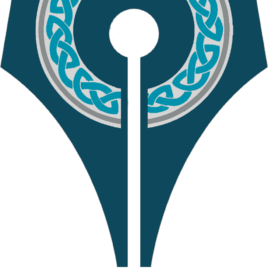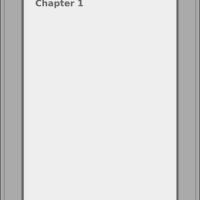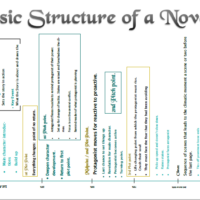Reading List for 2017
During my studies, with the Open University, as much as I enjoyed the set materials (well most of them) I was not happy that I did not have much time to read for my own enjoyment. I was also finding myself limited to only part reading books I was enjoying due to time constraints of studying while looking after three small kids. Unfinished books are marked with an ‘*‘. I have decided to put together a reading list of the twelve books (some are really big) I want to read or finish reading this year.
For this reason, I have decided to put together a reading list of the twelve books (some are really big) I want to read or finish reading this year, and I have scheduled time for my own reading in my calendar. I have included blurbs and links so if you fancy any yourself you can find them quickly (all links are kindle UK). You might notice a bit of a theme. I don’t intend to read them in any particular order (apart from the first one which is due today and I am champing at the bit to start). Oh, and you might notice a bit of a theme.
Vikings
– Neil Oliver –
The Vikings famously took no prisoners, relished cruel retribution, and prided themselves on their blood-thirsty skills as warriors. But their prowess in battle is only a small part of their story, which stretches from their Scandinavian origins to America in the west and as far as Baghdad in the east.
As the Vikings did not write their history, we have to discover it for ourselves, and that discovery, as Neil Oliver reveals, tells an extraordinary story of a people who, from the brink of destruction, reached a quarter of the way around the globe and built an empire that lasted nearly 200 years.
Drawing on the latest discoveries that have only recently come to light, Neil Oliver goes on the trail of the real Vikings. Where did they emerge from? How did they really live? And just what drove them to embark on such extraordinary voyages of discovery over 1000 years ago? VIKINGS will explore many of these questions for the first time in an epic story of one of the world’s great empires of conquest.
*Sea Wolves – From Raiders to Kings
– Lars Brownworth –
In AD 793 Norse warriors struck the English isle of Lindisfarne and laid waste to it. Wave after wave of Norse ‘sea-wolves’ followed in search of plunder, land, or a glorious death in battle. Much of the British Isles fell before their swords, and the continental capitals of Paris and Aachen were sacked in turn. Turning east, they swept down the uncharted rivers of central Europe, captured Kiev and clashed with mighty Constantinople, the capital of the Byzantine Empire.
But there is more to the Viking story than brute force. They were makers of law – the term itself comes from an Old Norse word – and they introduced a novel form of trial by jury to England. They were also sophisticated merchants and explorers who settled Iceland, founded Dublin, and established a trading network that stretched from Baghdad to the coast of North America.
In The Sea Wolves, Lars Brownworth brings to life this extraordinary Norse world of epic poets, heroes, and travellers through the stories of the great Viking figures. Among others, Leif the Lucky who discovered a new world, Ragnar Lodbrok the scourge of France, Eric Bloodaxe who ruled in York, and the crafty Harald Hardrada illuminate the saga of the Viking age – a time which “has passed away, and grown dark under the cover of night”.
The Normans
– Lars Brownworth –
There is much more to the Norman story than the Battle of Hastings. These descendants of the Vikings who settled in France, England, and Italy – but were not strictly French, English, or Italian – played a large role in creating the modern world. They were the success story of the Middle Ages; a footloose band of individual adventurers who transformed the face of medieval Europe. During the course of two centuries they launched a series of extraordinary conquests, carving out kingdoms from the North Sea to the North African coast.
In The Normans, author Lars Brownworth follows their story, from the first shock of a Viking raid on an Irish monastery to the exile of the last Norman Prince of Antioch. In the process he brings to vivid life the Norman tapestry’s rich cast of characters: figures like Rollo the Walker, William Iron-Arm, Tancred the Monkey King, and Robert Guiscard. It presents a fascinating glimpse of a time when a group of restless adventurers had the world at their fingertips.
*Viking Age Iceland
– Jesse Byock –
Medieval Iceland was unique amongst Western Europe, with no foreign policy, no defence forces, no king, no lords, no peasants and few battles. It should have been a utopia yet its literature is dominated by brutality and killing. The reasons for this, argues Jesse Byock, lie in the underlying structures and cultural codes of the islands’ social order. ‘Viking Age Iceland’ is an engaging, multi-disciplinary work bringing together findings in anthropology and ethnography interwoven with historical fact and masterful insights into the popular Icelandic sagas, this is a brilliant reconstruction of the inner workings of a unique and intriguing society.
*The Last Kingdom
– Bernard Cornwell –
Uhtred is an English boy, born into the aristocracy of ninth-century Northumbria. Orphaned at ten, he is captured and adopted by a Dane and taught the Viking ways. Yet Uhtred’s fate is indissolubly bound up with Alfred, King of Wessex, who rules over the only English kingdom to survive the Danish assault.
The struggle between the English and the Danes and the strife between christianity and paganism is the background to Uhtred’s growing up. He is left uncertain of his loyalties but a slaughter in a winter dawn propels him to the English side and he will become a man just as the Danes launch their fiercest attack yet on Alfred’s kingdom. Marriage ties him further still to the West Saxon cause but when his wife and child vanish in the chaos of the Danish invasion, Uhtred is driven to face the greatest of the Viking chieftains in a battle beside the sea. There, in the horror of the shield-wall, he discovers his true allegiance.
The Last Kingdom, like most of Bernard Cornwell’s books, is firmly based on true history. It is the first novel of a series that will tell the tale of Alfred the Great and his descendants and of the enemies they faced, Viking warriors like Ivar the Boneless and his feared brother, Ubba. Against their lives Bernard Cornwell has woven a story of divided loyalties, reluctant love and desperate heroism. In Uhtred, he has created one of his most interesting and heroic characters and in The Last Kingdom one of his most powerful and passionate novels.
The Pale Horseman (The Last Kingdom Series, Book 2)
– Bernard Cornwell –
When peace is torn apart by bloody Danish steel, Uhtred must fight to save a king who distrusts him.
Skeptical of a treaty between the Vikings and Wessex, Uhtred takes his talent for mayhem to Cornwall, gaining treasure and a mysterious woman on the way. But when he is accused of massacring Christians, he finds lies can be as deadly as steel.
Still, when pious King Alfred flees to a watery refuge, it is the pagan warrior he relies on. Now Uhtred must fight a battle which will shape history – and confront the Viking with the banner of the white horse …
Uhtred of Bebbanburg’s mind is as sharp as his sword. A thorn in the side of the priests and nobles who shape his fate, this Saxon raised by Vikings is torn between the life he loves and those he has sworn to serve.
*The Second World War
– Antony Beevor –
A magisterial, single-volume history of the greatest conflict the world has ever known by our foremost military historian.
The Second World War began in August 1939 on the edge of Manchuria and ended there exactly six years later with the Soviet invasion of northern China. The war in Europe appeared completely divorced from the war in the Pacific and China, and yet events on opposite sides of the world had profound effects. Using the most up-to-date scholarship and research, Beevor assembles the whole picture in a gripping narrative that extends from the North Atlantic to the South Pacific and from the snowbound steppe to the North African Desert.
Although filling the broadest canvas on a heroic scale, Beevor’s THE SECOND WORLD WAR never loses sight of the fate of the ordinary soldiers and civilians whose lives were crushed by the titanic forces unleashed in this, the most terrible war in history.
My copy is a paperback which is almost A4 and about three inches thick. It could take a while to finish this cover to cover.
*The Storms of War
– Kate Williams –
The first novel in Kate Williams’ groundbreaking new historical series which begins in the First World War. For fans of BIRDSONG and DOWNTON ABBEY.
In the idyllic early summer of 1914, life is good for the de Witt family. German Rudolf and his aristocratic English wife Verena are planning the wedding of their daughter, Emmeline, while their eldest son Arthur is studying in Paris and Michael is just back from his first term at Cambridge. Celia, the youngest of the de Witt children, is on the brink of adulthood, and secretly dreams of escaping her carefully mapped out future and exploring the world.
But with the onslaught of war, the de Witts find themselves in danger of losing everything they hold dear. As Celia struggles to make sense of the changing world around her, she lies about her age to join the war effort and finds herself embroiled in a complex plot that puts her and those she loves in danger.
With gripping detail and brilliant empathy, Kate Williams tells the story of Celia and her family as they are shunned by a society that previously embraced them, torn apart by sorrow, and buffeted and changed by the storms of war.
Nation
– Terry Pratchett –
On the day the world ends . . .
. . . Mau is on his way home from the Boys’ Island. Soon he will be a man. And then the wave comes – a huge wave, dragging black night behind it and bringing a schooner which sails over and through the island rainforest. The village has gone. The Nation as it was has gone. Now there’s just Mau, who wears barely anything, a trouserman girl who wears far too much, and an awful lot of big misunderstandings . . .Wise, witty and filled with Terry Pratchett’s inimitable comic satire, this is a terrific adventure that – quite literally – turns the world upside down.
The Talent Series (To Ride Pegasus, Pegasus in Flight, Pegasus in Space)
– Anne McCaffrey –
From Book 1-3: They were people whose gifts were unique. For years – centuries – they had not even understood just what they could do with their minds. They had sometimes become astrologers, clairvoyants, or healers, but their Talents were undeveloped and untrained. Henry Darrow was the first to explore the huge wealth of psychic gifts hidden amongst mankind, and it was he who formed the first Parapsychic Centre where Talents could train and be used to revolutionise the world. But their powers set them apart, made them feared, then threatened by the un-Talented. And when dangerous freak ‘wild’ Talents began to wreak havoc in the outside world, it took all their combined Talented efforts to save themselves.
(Okay, it’s three, but I read the Brain Ship, and Crystal Singer Series’ years ago and I love them)
The Rowan (Tower and Hive Sequence)
– Anne McCaffrey –
The first book in the Tower and the Hive sequence
The Talents were the elite of the Nine Star League. Their gifts were many and varied, ranging from the gently telepathic, to the rare and extremely valued Primes. On the Primes rested the entire economic wealth and communications systems of the civilised worlds. But Primes were scarce – only very rarely was a new one born. And now, on the planet Altair, in a small mining colony on the western mountain range, a new Prime existed, a three-year-old girl – trapped in a giant mud slide that had wiped out the rest of the Rowan mining community. Every Altarian who was even mildly talented could ‘hear’ the child crying for help, but no one knew where she was buried. Every resource on the planet was centred into finding ‘The Rowan’ – the new Prime, the first ever to be born on Altair, an exceptionally unique Prime, more talented, more powerful, more agoraphobic, more lonely, than any other Prime yet known in the Nine Star league
The Worthing Chronicle
– Orson Scott Card –
Jason Worthing was a telepath, and the best of the ark captains sent to conquer and seed humankind anew on a hundred new worlds.
He vowed that his new-world would be different from the stagnant one he had fled. He established his colonists and his descendants; and when he was sure that they would survive, he sealed himself in the last somec chamber in all the galaxy, triggered to awaken him when his world had built a new civilization.
Call to action
- What are your top 12 (or more) books that you want to read or finish this year?
- Keep a record and see how many you actually get through.













